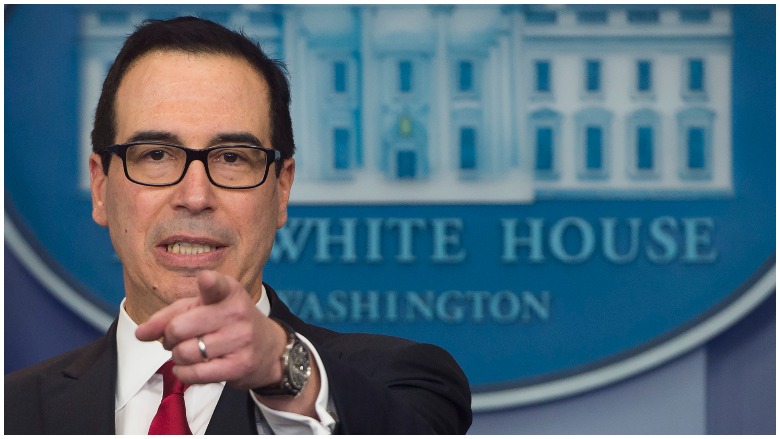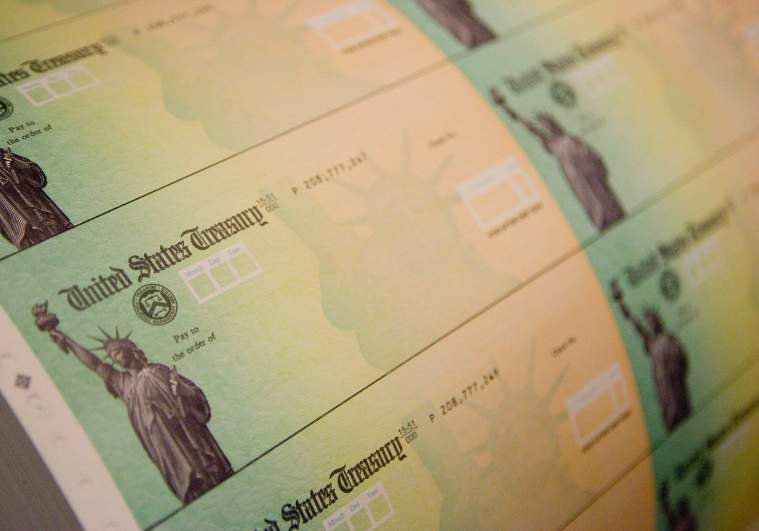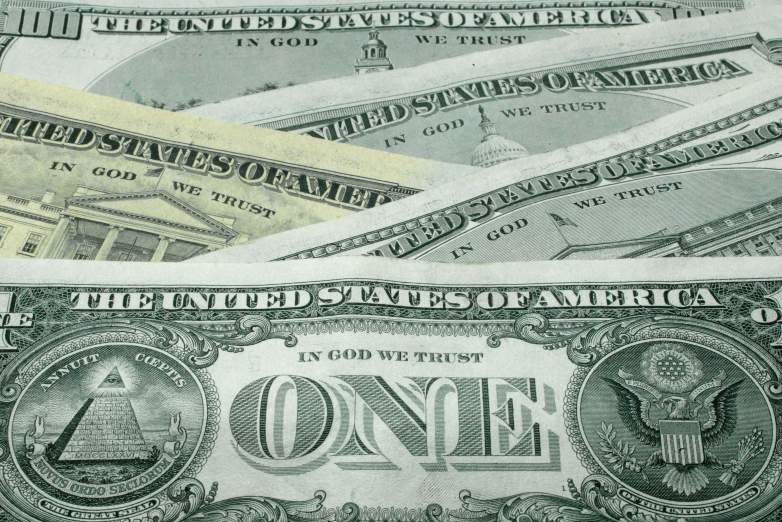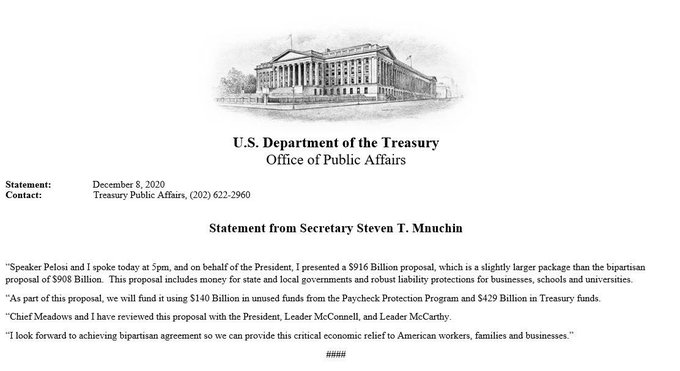
Treasury Secretary Steven Mnuchin is pushing to use leftover Paycheck Protection Program funds to back the White House’s latest coronavirus stimulus proposal.
President Donald Trump’s Administration announced on Tuesday, December 8, a $916 billion relief proposal to House Speaker Nancy Pelosi, which further complicated “lawmakers’ last-ditch efforts to craft and pass a new coronavirus aid bill before the end of the year,” according to Forbes.
Mnuchin disclosed on Twitter that the plan would be funded through $140 billion in leftover PPP aid and $429 billion from the Treasury Department “(likely the unused emergency funds Mnuchin asked the Federal Reserve to return last month),” Forbes continued.
In the December 8 statement, Mnuchin said, “Speaker Pelosi and I spoke today at 5 p.m., and on behalf of the President, I presented a $916 Billion proposal, which is a slightly larger package than the bipartisan proposal of $908 Billion. This proposal includes money for state and local governments and robust liability protections for businesses, schools and universities.”
He added, “As part of this proposal, we will fund it using $140 Billion in unused funds from the Paycheck Protection Program and $429 Billion in Treasury funds. Chief Meadows and I have reviewed the proposal with the President, Leader McConnell, and Leader McCarthy.”
The proposal seeks to compromise on two major contention points between both sides — state and local government funding and liability protections for businesses.
Here’s what you need to know:
Mnuchin’s Proposal Includes $600 Stimulus Checks

Getty
According to The Washington Post, the White House proposal incorporates $600 direct stimulus payments to Americans. However, it does not include additional enhanced federal unemployment benefits. Forbes noted that “emergency unemployment programs set to expire at the end of the year would be extended,” though.
Mlive reported that the checks are a bid to have Democrats forego the $300 in weekly unemployment benefits from the relief package.
Stimulus checks have remained a hot button issue among negotiators, Forbes said, writing:
Dick Durbin (D-Ill.) told ABC’s This Week Sunday that another round of direct payments would cost about $300 billion and had been excluded from that package to make the price tag more palatable to Senate Republicans. Lawmakers working on the bipartisan effort have also faced major disagreements over more aid for state and local governments and liability protections for businesses, two issues that have hampered relief negotiations for months.
The Proposal Is Separate From a $908 Billion Framework Put Forward by a Bipartisan Group of Centrist Senators

Getty
Current negotiations have been centered around a $908 billion bipartisan plan introduced by a group of senators, Forbes said.
The bill includes money for small businesses, additional federal unemployment benefits, testing, vaccine distribution and schools, the outlet continued.
Forbes added that the plan would offer $300 weekly supplemental unemployment checks for four months and $160 billion in state and local aid and a liability shield. It does not offer a direct stimulus check.
On Twitter, Pelosi has already expressed her opposition to the new proposal.
“While it is progress that Leader McConnell has signed off on a $916 billion offer based on the bipartisan framework, the President’s proposal, which cuts unemployment insurance by $140 billion compared to the framework, is unacceptable,” she wrote on December 8.
READ NEXT: California Monolith: Meet the Men Behind the Infamous Monument
